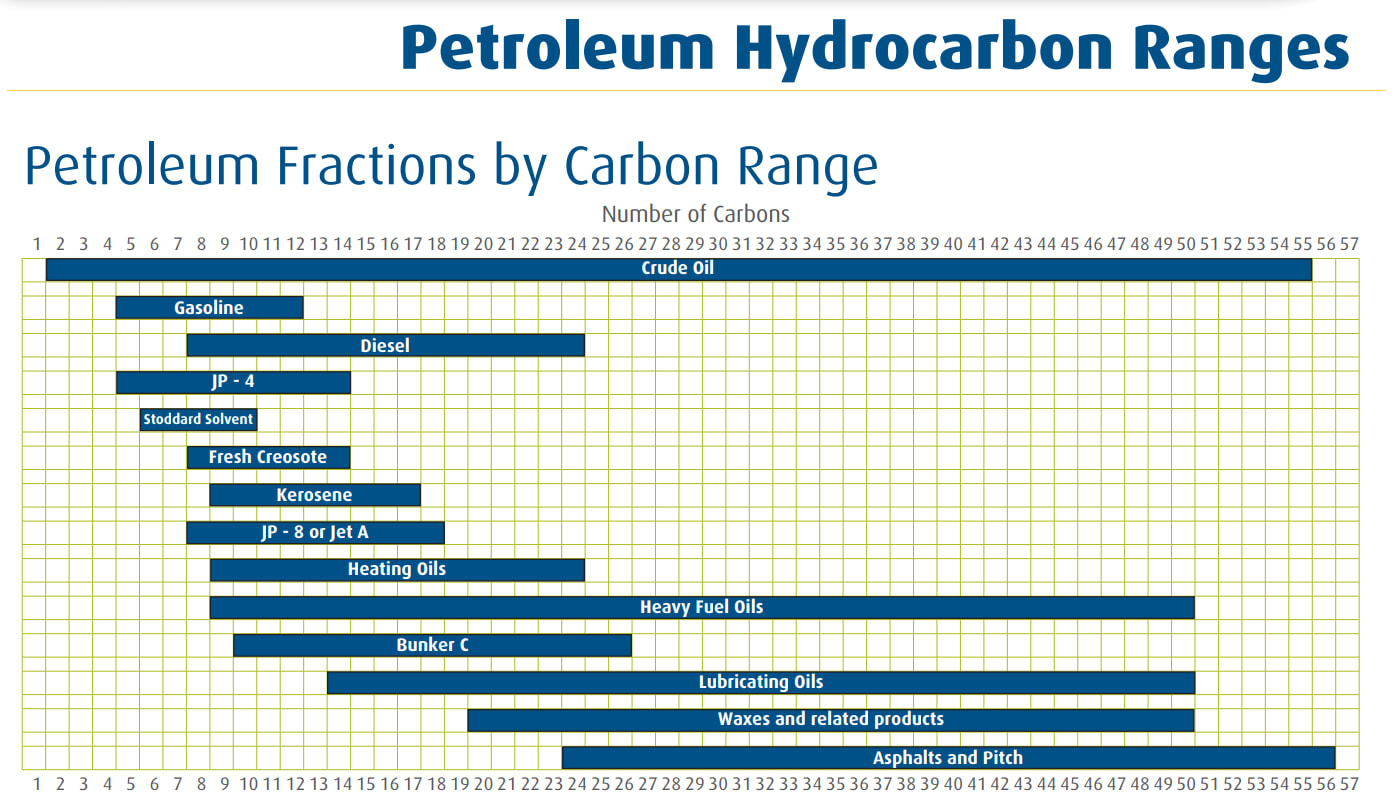TPH (Total petroleum hydrocarbon)
Toxic. Smelly.
What is TPH?Total petroleum hydrocarbons, or TPH, are chemical compounds derived from petroleum. TPH compounds are part of a larger group of contaminants called oil and grease that include fatty and oily substances not derived from crude oil, such as animal fats and cooking oils. Some TPH compounds are found in crude oil and others are produced when crude oil is refined into useful household or industrial products. Because there are hundreds of types of hydrocarbons, it is more practical to measure TPH rather than measure each hydrocarbon separately. When TPH is listed as a contaminant at a site, it means that some, but not necessarily all, types of petroleum hydrocarbons are present. TPH components include organics like gasoline, kerosene, benzene, and napthalene.
|
Scientists categorize TPH based on the number of carbon atoms present. TPH compounds with a higher number of carbon atoms are heavier and more likely to sink into the sediment. TPH compounds with fewer carbons are not as prevalent in sediment, are more likely to float, and can evaporate. The categories, or ranges, that scientists use are listed below:
- GRO (gasoline range organics) typically refers to petroleum hydrocarbons that contain between six and 12 carbon atoms.
- DRO (diesel range organics) typically refers to petroleum hydrocarbons with a range of 10-28 carbon atoms.
- ORO (oil range organics) typically refers to petroleum hydrocarbons with a range of 20-35 carbon atoms.
How does TPH enter our environment?
Petroleum products like fuels (diesel, gas) and oil (motor oil, lubricating oil) are made from crude oil. Some of the ways these substances enter the environment include spills and leaking machinery and vehicles. Substances may be illegally dumped into sewer systems or washed into rivers and lakes during heavy rains. Some components of TPH may seep into groundwater, while others adhere to soil and sediment.
How are people exposed to TPH?
TPH is common in the environment, and people are exposed to TPH in a variety of ways. This can include wading in sediment contaminated with TPH, drinking water contaminated with TPH, and breathing the air at gas stations.
Can TPHs harm my health?
Yes, but the specific health impact varies based on the chemical compound. Some TPH compounds affect the nervous system. Others affect the immune system. Animal studies show that some TPH compounds affect reproduction and developing fetuses. One TPH compound, benzene, is a carcinogen (causes cancer).




